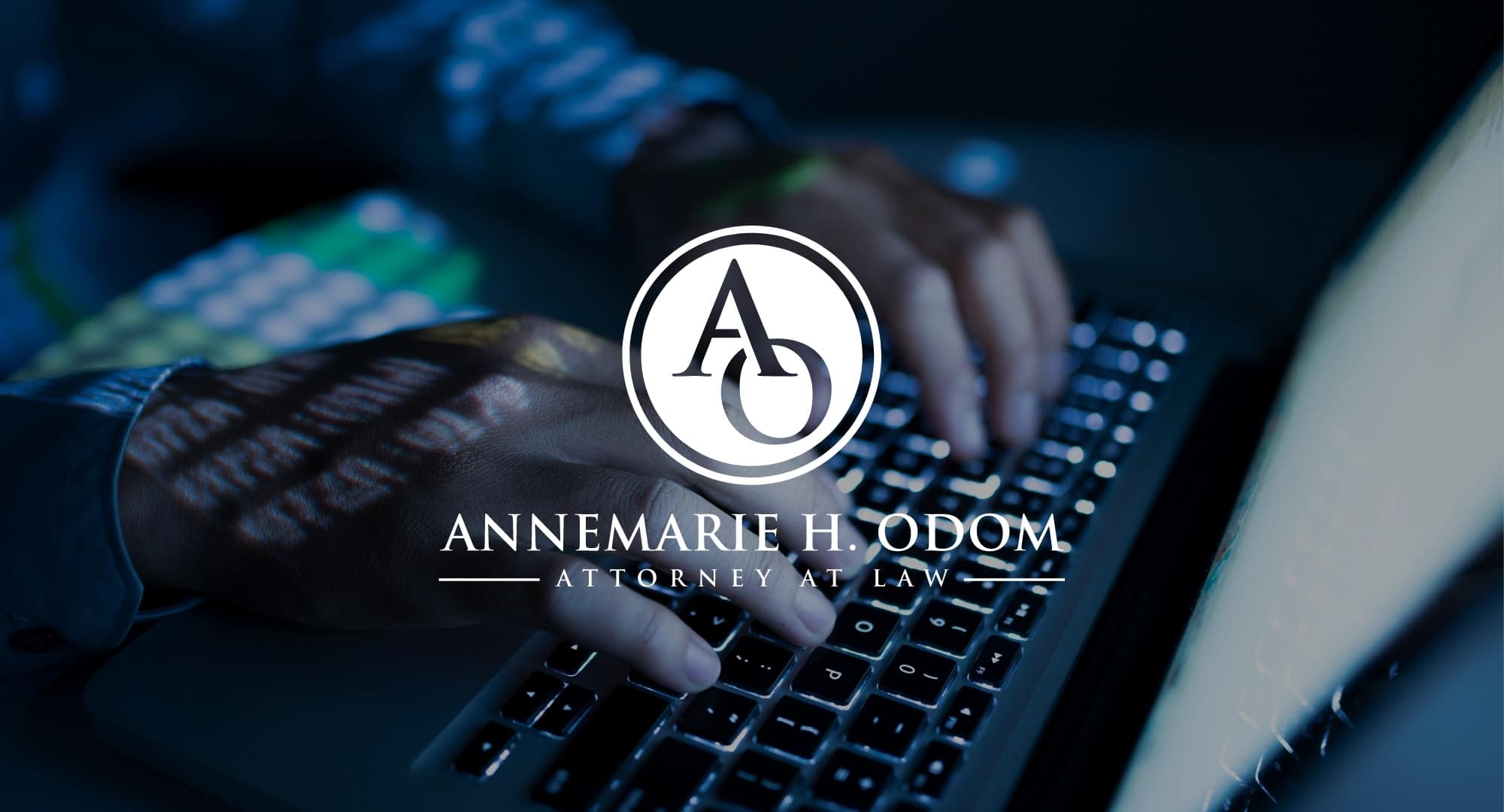Child Pornography Defense
Practice Areas
Greenville Child Pornography Defense Lawyer
Law enforcement has always placed plenty of concern and focus on protecting minors from sexual abuse, including things like sexual exploitation. But what is sexual exploitation, exactly? The sexual exploitation of a child involves the participation or depiction of a minor engaged in any type of activity that is used to create visuals such as pornographic videos or images.

If you’re facing child pornography charges or any other sex crime charge in South Carolina, you’ll need the help of a skilled Greenville criminal defense lawyer like AnneMarie Odom. At AnneMarie Odom Law, we are well aware of the significant implications for our clients who are facing these types of charges, and our primary goal is to help you achieve the best possible outcome for your unique situation. Contact the law offices of AnneMarie Odom right away by calling (864) 775-5833.
What Constitutes Child Pornography?
Federal law defines child pornography as any “visual depiction of sexually explicit conduct involving a minor” per 18 U.S.C. § 2256. In South Carolina specifically, a child pornography charge is actually called “sexual exploitation of a minor.” Anyone less than 18 years old is considered a minor in this state.
There are three categories of child pornography charges in South Carolina, all felonies. These are the production, possession, and dissemination of child pornography. Each are extremely serious crimes that carry severe criminal penalties and social ramifications.
18 U.S.C. § 2251 – Production of Child Pornography / Sexual Exploitation of Children
Per 18 U.S.C. § 2251, it is against federal law to entice, coerce, or persuade a minor to engage in the creation of child pornography. Attempting or conspiring to make child pornography is also a crime. However, a minor doesn’t need to perform sexual acts in the final product to be considered obscene legally. It’s enough to show something as simple as a nude child.
18 U.S.C. § 2252 – Possession, Distribution and Receipt of Child Pornography
18 U.S.C. § 2252 covers the possession, distribution, and receipt of child pornography. Any materials that show a minor in a sexually suggestive way are illegal to possess. This includes videos, photographs, images generated electronically, and stored data that a person can use to create pornographic images of children. It’s also illegal to receive or try to receive such images or distribute them knowingly.
Is Viewing the Same as Possessing?
While cell phones, the internet, chat rooms, social media, and other forms of technology now make child sexual exploitation easier to commit, it also makes it easier to track and gather evidence against a perpetrator. If child pornography is on a person’s computer, law enforcement must first prove the person possessed the device. The next step is establishing that the person knew the information was on their computer.
Images and videos download to a hard drive folder when you visit a website. These files are temporary and called cache files. They help the computer load the website faster in the future. This data can stay on a hard drive for months or even years. The computer’s owner possesses child pornography if any files saved in the cache depict minors participating in sex acts. Law enforcement checks to see where the images came from and when exactly the owner accessed them. This determines whether the owner had purposeful possession of the illicit images.
Legal Gray Area Between Viewing and Possessing
In the ever-changing world of technology, there has become a sort of gray area between the viewing and possession of child pornography. Obviously, actively downloading materials that you could later share or sell demonstrates possession, promotion, distribution, and receipt of child pornography. However, simply browsing online could also indicate a type of possession. This is because access to photos, videos, and other content is nearly instant, allowing users to view items very easily without the need to download them.
Still, a legal difference exists between the act of saving, downloading, or printing content and possessing it on your computer and keeping it in your browser’s cache.
First Degree Sexual Exploitation of a Minor SC
South Carolina law assigns charges for many crimes in varying degrees, depending on their severity. Each degree, including a first, second, or third-degree charge, require a the defendant to have knowledge of the “character or content of the material or performance.”
First-degree sexual exploitation of a minor SC charge applies to those who physically engage in child pornography creation. There are four ways this can happen, including:
1) persuading or coercing a minor to participate in sexual behaviors or pornography;
2) letting an underage person for whom you are responsible do these activities;
3) transporting a minor or paying for these activities;
4) filming or photographing an underage person participating in sexual behaviors or pornography for a profit.
These all apply whether you are aware of the age of the minor or not and may result in a penalty of anywhere between three to 20 years in prison.
2nd Degree Exploitation of a Minor SC
This charge addresses reproducing or disseminating child pornography. For a second-degree exploitation of a minor SC charge, the accused must have done the following:
- Created or distributed images of a minor engaging in sexual activity without intending to sell it; OR
- Transported or sold child pornography but did not create it.
Second-degree sexual exploitation of a minor SC is the lowest charge possible for a person found trafficking or distributing sexual content featuring a minor. In the event of a plea agreement, the charge may differ.
The penalty for this felony charge is a minimum of two to a maximum of 10 years behind bars. The minimum prison term cannot be suspended, and no parole is possible until the convicted person serves the two-year minimum sentence. There are no overlapping sentences for charges with multiple counts or another offense in the same section.
Third Degree Exploitation of a Minor SC
Though third degree sexual exploitation of a minor is the least serious degree of this charge, it is still a felony. This charge involves possessing videos, photos, or any other content featuring an actual underage individual nude or otherwise participating in sexual activities.
This charge doesn’t have a minimum sentencing requirement. However, the court may hand down a maximum sentence of up to 10 years in prison.
Sex Offender Registry
Biannual sex offender registration is required for anyone convicted of any degree of Sexual Exploitation of a Minor. In other words, if convicted, you’ll have to register as a sex offender twice a year for the rest of your life.
Sexting Laws South Carolina
In some states, the laws on the books addressing sexting between teenagers don’t carry severe penalties. Other states, however, take a different approach and punish this behavior under child pornography or child enticement laws. For example, in South Carolina, a person 16 years or older can be charged as an adult for violating child pornography laws like sexting.
South Carolina doesn’t consider sexting between adults a crime. It does, however, become a crime when minors sext. As mentioned before, the state considers anyone younger than 18 a juvenile. As such, it is either a charge of disseminating obscenity to minors or sexual exploitation of a minor (child pornography) when sexting images of or to minors occurs.
Disseminating Obscenity to Minors
Sending sexually charged or offensive material to an underage person is considered disseminating obscenity to minors. When a minor aged 13 to 17 receives obscene material from an adult, it is a Class E felony. It’s a Class D felony when the minor is 12 or younger, which is punishable by up to 15 years of incarceration.
Whether juvenile or adult court hears the case, a conviction comes with severe penalties and will likely require lifetime sexual offender registration.
Defense for Child Pornography
A child pornography charge is nothing to take lightly. However, there are defenses to this charge. Some defenses we may consider at AnneMarie Odom Law include:
- Illegal searches and seizures
- Viewing accidentally
- Coerced confession
- Accusation is false
- You didn’t know child pornography was on a shared computer
- The individual depicted in the video or image is not a minor
- Bad tracking software
Of course, you may always have more defenses available, depending on the facts and circumstances of your unique case. Speaking with an experienced child pornography defense attorney in South Carolina is your best first step to fighting this charge.
Contact an Experienced South Carolina Child Pornography Defense Lawyer Today
If you are accused of producing, possessing, or disseminating child pornography, it’s crucial that you act quickly to defend yourself. You’re facing years behind bars, as well as the imminent social and occupational consequences that accompany such a serious charge. Not to mention, if convicted, your name will appear on the sex offender registry for the rest of your life.
AnneMarie Odom Law understands the significance of a child pornography accusation and the harsh realities that come with a conviction. As such, we highly encourage you to contact our firm for representation as soon as possible. We work diligently to achieve a successful outcome for you, whether that be a reduction in charges or fines, a case dismissal, or an acquittal at trial.
Please call our experienced Greenville sex crime defense lawyers at (864) 775-5833 right away.

Contact a Greenville child pornography defense lawyer at AnneMarie Odom Law to discuss your situation and work towards building the best possible defense for your case.
— OR —
